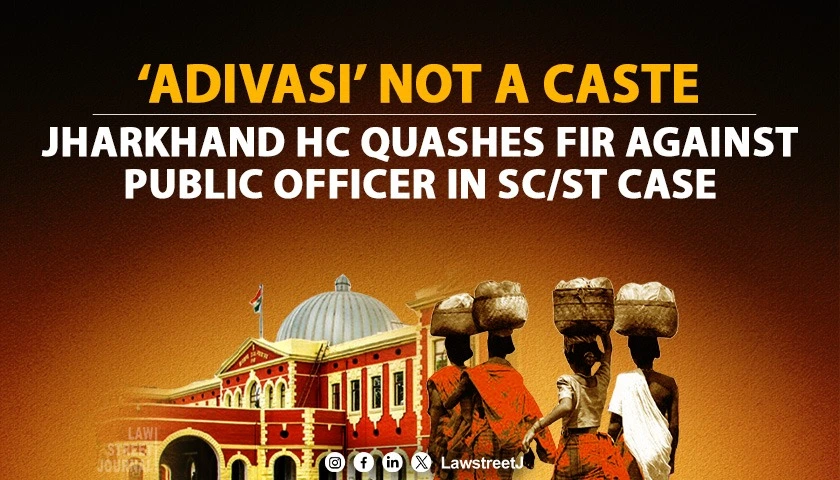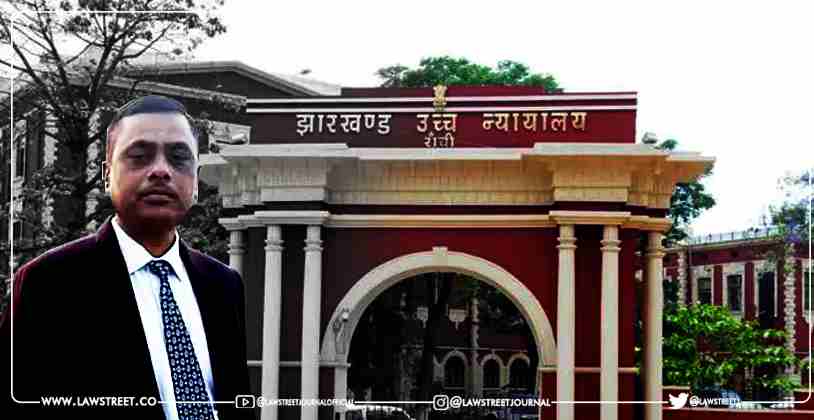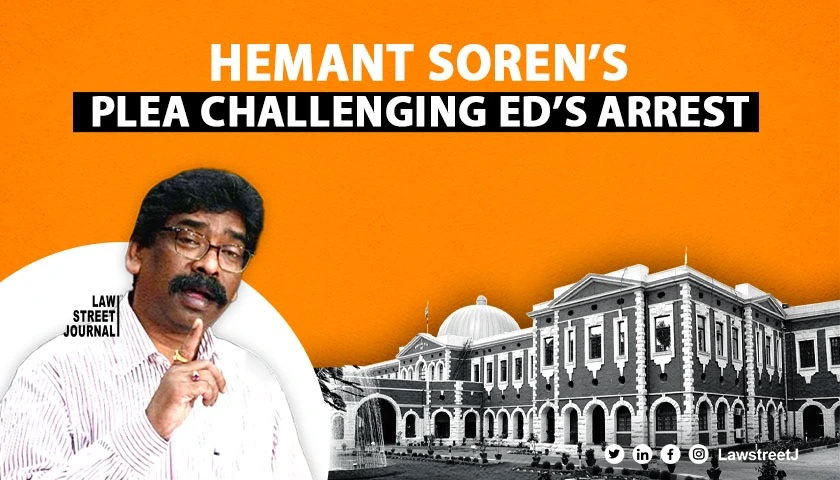Jharkhand: The Jharkhand High Court has quashed an FIR against a public servant, emphasizing that “Adivasi” is not a caste specifically listed in the Constitution (Scheduled Tribes) Order, 1950, and therefore cannot qualify for protection under the SC/ST (Prevention of Atrocities) Act.
Justice Anil Kumar Choudhary delivered the judgment in a petition filed by Sunil Kumar, who sought to quash FIR No. 07 of 2023 registered against him for offenses under various sections of the Indian Penal Code and the SC/ST Act.
The court addressed allegations that the petitioner, while posted as a settlement officer, refused to accept an RTI application from the female respondent, allegedly using derogatory language by calling her an “insane Adivasi” and pushing her out of his chamber.
Examining the legal requirements for offenses under the SC/ST Act, the court observed:
“Unless the name of the caste or tribe finds place in the public notification made by the President of India, specifying the tribes or tribal communities or parts or groups within tribes or tribal communities or castes, races or tribes, or parts or groups within castes, races or tribes, such person cannot be treated as a Scheduled Caste or a Scheduled Tribe.”
The court highlighted that the only reference in the FIR was to “Adivasi,” which does not appear in Part XXII of the Constitution (Scheduled Tribes) Order, 1950 applicable to Jharkhand, stating:
“There is no allegation in the FIR that the informant belongs to any of the castes mentioned in Part XXII, which is applicable to the State of Jharkhand.”
Regarding the IPC charges, the court found that the essential ingredients for an offense under Section 354 (outraging modesty) were missing, as there was no allegation that the petitioner intended to outrage the informant’s modesty. Section 341 (wrongful restraint) was also deemed inapplicable, as there was no allegation of obstructing the informant’s movement.
The court noted that the other charges under Sections 323, 504, and 506 of IPC were non-cognizable offenses and, thus, not relevant for the purpose of the petition.
Justice Choudhary concluded:
“As no cognizable offence punishable in law is made out against the petitioner, even if the entire allegation made against him is considered to be true in its entirety… continuation of this criminal proceeding against the petitioner, who is undisputedly a public servant and the occurrence took place when he was discharging his duty as such public servant, will amount to abuse of process of law.”
The petitioner was represented by Ms. Chandana Kumari, Advocate, while Mr. Ashutosh Anand, AAG, and Mr. Binit Chandra, AC to AAG, appeared for the State. Respondent No. 4 was represented by Advocates Mr. Sahay Gaurav Piyush and Mr. Amrendra Datri.
Case Title: Sunil Kumar vs. The State of Jharkhand & Ors.




![Supreme Court Collegium approves new Chief Justices for five key High Courts in India [Read Recommendations]](/secure/uploads/2023/12/lj_8000_380d1135-6f3a-4988-a00a-4d5cd5901815.jpg)
!['Arbitrary, impermissible,' SC quashes HC's resolution raising aggregate cut off marks on district judges appointment [Read Judgment]](/secure/uploads/2024/02/lj_3605_Rule-for-Judge-Selection.webp)





